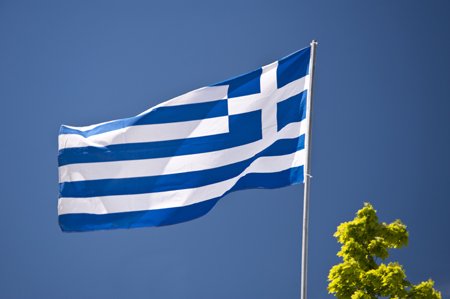GREECE: MISSION IMPOSSIBLE?
Published by Gbaf News
Posted on December 1, 2015
5 min readLast updated: January 22, 2026

Published by Gbaf News
Posted on December 1, 2015
5 min readLast updated: January 22, 2026

Nikos Bozionelos, Audencia Nantes School of Management
We are now at the third pact between the EU, the IMF and Greece. It has come to the stage that the Europeans in the shape of Pierre Moscovici are demanding (if not begging) that Greece abides to this pact and legislates the agreed structural reforms that were largely neglected during the two previous pacts.
Bearing in mind that at the onset of the crisis in early 2010 the idea was for Greece to return to the markets in 2012, it is today clear that the structural reforms are not progressing and the Greek economy not improving noticeably. Beyond any reasonable doubt, the Greek debt cannot be repaid. For Greece to stand any chance of paying what it owes it must have consistently strong growth and a highly disciplined economic policy for at least the next 100 years: something impossible for any country.
The EU and the IMF focus on structural reforms partly because this is apparently the only kind of change they can have some control over and partly due to the fact that the countries that make up the core of the EU and oversee IMF structural changes “work” because laws and rules are respected. This, however, is not the case with Greece.
The Greek problems are unequivocally cultural, and national culture cannot be reformed or fixed. The EU and IMF representatives simply need to enter a cafe or restaurant in Athens to confirm that the country’s legislative changes do not work. They would see that Greece is the only country in the world with two consecutive anti-smoking laws neither of which has been respected or enforced Smoking continues uninterrupted in all closed public places. The delegates from the EU and the IMF could also try to walk on a pavement, an impossible feat because pavements in Greece are used for car parking despite the fact that the law strictly prohibits this.
Insistence on structural changes with the expectation that these will improve the functioning of the economy and the handling of public affairs is completely inappropriate within the Greek context. When legislation is passed in Greece it is rarely implemented. Even if laws are signed off on paper they will not be implemented in effect. This fixation of the EU and the IMF for the past six years has had two direct adverse effects.
Firstly, it has further diminished the probability that Greece will be able at some point to stand on its own feet financially, i.e. not to repay the debt, but simply be able to break even without external support. Greece has always been a country where nepotism, corruption and complete lack of meritocracy reigned. This means that able people with some moral standards but without the right connections move abroad and that those in key public and often private sector posts are not up to the task in terms of substantive qualifications, mentality, attitude and ethos.
There has therefore been a constant brain and attitude drain that was to some extent, however, within controllable limits. The EU and the IMF’s handling of the Greek situation has greatly exacerbated this situation. Strict austerity meant a much smaller “pot”, which translated into more extensive nepotism and even fewer, if any, chances for a worthy individual to find employment in Greece. Virtually all Greeks who have worth as human capital and were able to move abroad have left since 2010. Those who have stayed are either underused yet capable people who cannot emigrate due to family obligations, or incapable people in terms of capacities and ethics who have the contacts that allow them to enjoy a good living without adding any value. In essence, Greece has been completely stripped of any human capital that could, in theory, help the country recover.
The second adverse effect is the demolition of the traditional political scene. We have witnessed the rise of extreme political tendencies, like Syriza, the ruling party since January 2015. Nobel-Prize winning research shows that in situations of despair people’s choices shift to the extreme. Syriza’s rise has had highly detrimental consequences in every direction.
It has fully dismantled what governments had achieved, however incompletely, since 2010 to give some hope for the stabilisation of the economy. According to estimates, within the first six months of Syriza’s rule Greece lost nearly €90 billion. But, perhaps most importantly, Syriza created cracks and serious problems within the EU, including producing the current refugee crisis by opening Greek borders. This was done partly as an act of revenge and as a means to exert pressure on the EU, but also as a nod to the communist ideology that national borders are not important. The result is a very difficult political, social and financial situation for the EU that is constantly intensifying and for which there is no apparent solution. In fact, the long term financial and social consequences of the refugee crisis may be far greater than the cost of writing off the total Greek debt.
The clear issue, therefore, is what the EU, or better still the western world, views as the right role for Greece. The current EU and IMF policy simply leaves the Greek economy drifting and Greece as a country farther and farther away from the point of no return. But this has many grave direct and indirect effects for the EU and for the larger western world. The choice is simple: either erase most or all of the Greek debt, as was the case for Germany in the 1950s, or continue in the same direction and suffer the consequences. Losing Greece in the current situation may mean losing the last stronghold of western interests in the region.
Explore more articles in the Top Stories category











